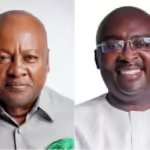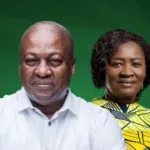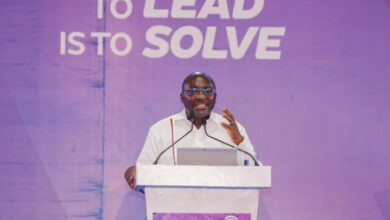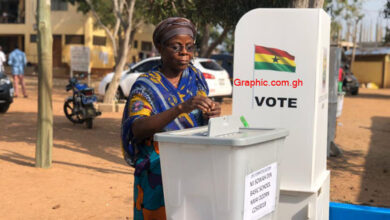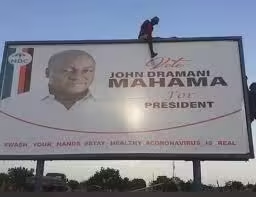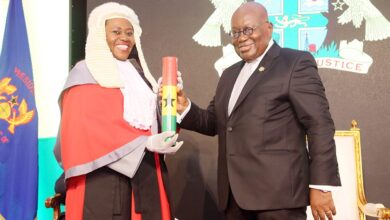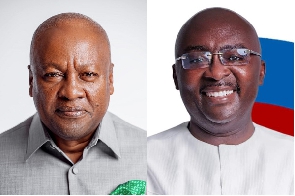
Election Road Map 2024: Analysts urge closer examination of campaign pledges.
The political landscape is flooded with grandiose and occasionally bold promises that promise to transform Ghana’s indebted economy into an immediate paradise as the December 2024 presidential race draws closer to its finish.
There hasn’t been a dull moment thus far, as prominent figures like former President John Dramani Mahama of the National Democratic Congress (NDC) and Vice-President Dr. Mahamudu Bawumia of the ruling New Patriotic Party (NPP) propose digitalization and a 24-hour economy, respectively, as the cornerstones upon which they would build their respective systems of governance.
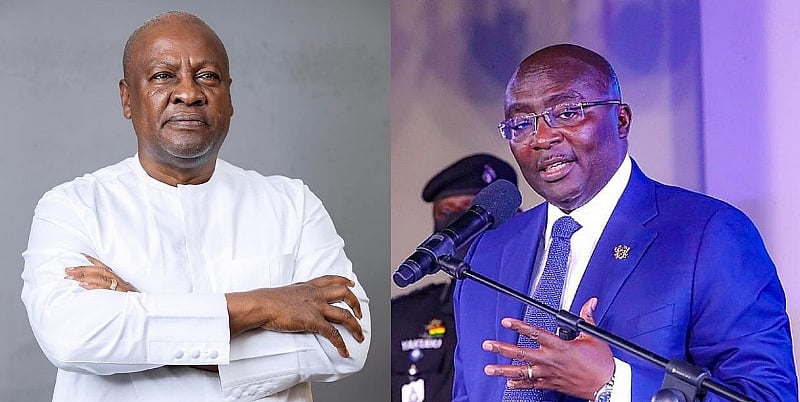
Bawumia’s push for digitization
Under his administration, Dr. Bawumia promised to strengthen the free senior high school program that President Nana Addo Dankwa Akufo-Addo’s government had put in place.
Additionally, his campaign entices businesses with a “fixed tax rate” system that is thought to be a more business-friendly regime, tax amnesty under certain conditions, a system of agriculture input support to increase food production, 100% ownership of Ghana’s natural resources, and general incentives to the local business environment.
The party described the drive towards digitization as his idea, and it is anticipated that all of these pledges will prosper under it.
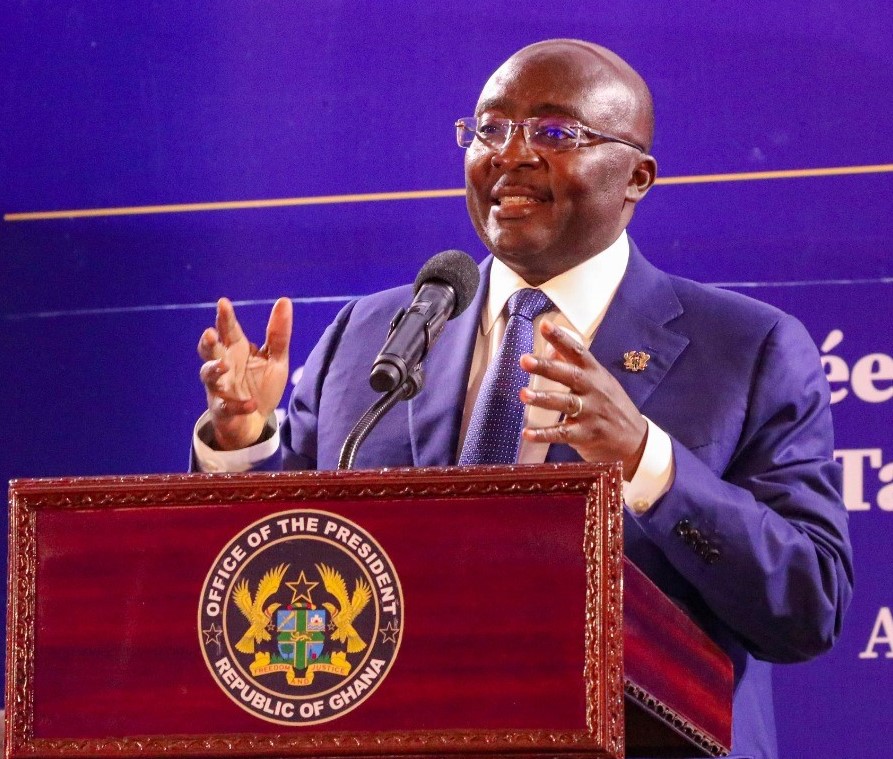
“I’m going to shift the way we think about managing natural resources. At a breakfast meeting with religious leaders in the Eastern Region on Monday, April 29, 2024, Dr. Bawumia stated that, “for the most part, Ghana has not maximised the benefits of our natural resources.”
Ever since the Portuguese era in the fifteenth century, gold has been extracted from Ghana. Not much of our natural resources have benefited us;
I’m going to alter that viewpoint. He added, “I’m going to put more emphasis on who owns our natural resources.
The 24-hour economy of Mahama
However, the Mahama campaign has hailed the party’s 24-hour economy policy as a magic bullet for transforming the regional economy by promoting home production of various items across industries.
“The 24-hour economy is a great method to build a strong foundation for a thriving Ghanaian industry by substituting domestic production of goods for imports.
Frequently, we import items not because they are superior to ours, but rather because no one manufactures them here in Ghana in the first place or because local manufacturing is insufficient,” the former president stated in an interview with the media in Accra on July 7, 2024.
“I’m confident that the stimulus package for enterprises wishing to engage in the 24-hour economy will persuade them to begin manufacturing import alternatives.
Are you aware of the reason? Since there is already a market for these items,” the former president said.
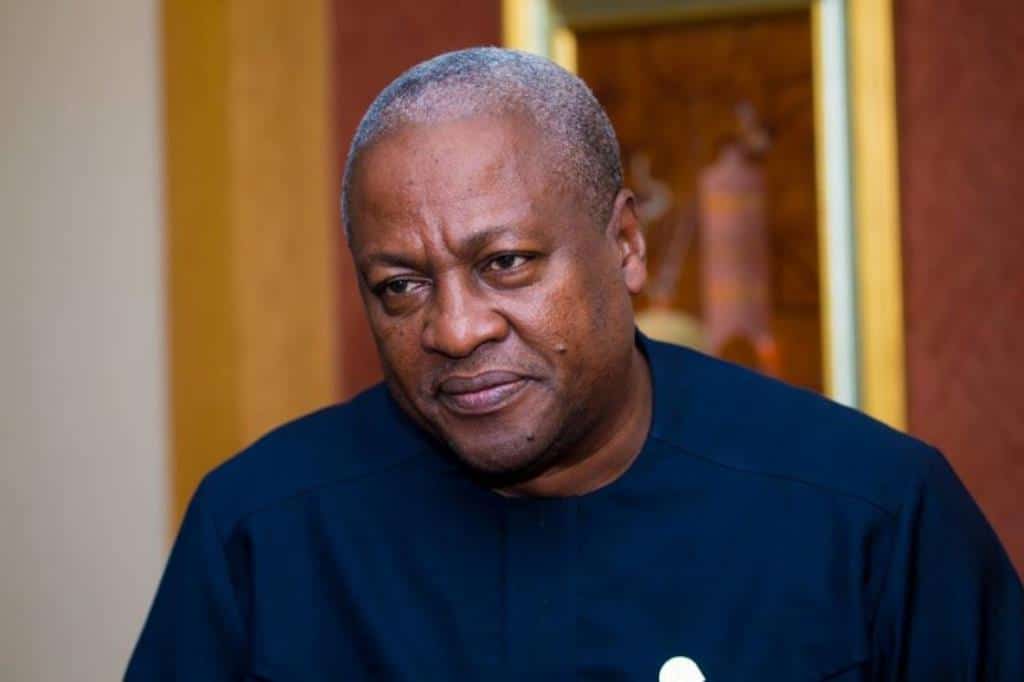
It has been the NDC’s most significant message yet, along with a promise to annex power and tighten the screws on corruption, enhance the educational system, and address infrastructure deficiencies, among other things.
Expert opinions
Thus far, four political scientists have shared insightful perspectives regarding the campaign slogans of the two major parties.
Professor Jeffrey Haynes, an Emeritus Professor of Politics at London Metropolitan University in the United Kingdom, stated that he has been impressed by the Mahama Campaign’s 24-hour economic program and the vows made by the divides to combat corruption.
“Thus far, what has captured my interest are the promises to combat corruption, the 24-hour economy, and the appeals to prevent electoral violence,” he stated to the Daily Graphic.
In separate interviews, political scientists Dr. Kwasi Amakye-Boateng, senior lecturer in political science at Kwame Nkrumah University of Science and Technology; Dr. Samuel Kofi Darkwa, political scientist and Daily Graphic columnist; and Gilbert Arhinful Aidoo, political science lecturer at the University of Education, Winneba, stated that the messages regarding jobs, the economy, and corruption were expected.
Exuberant assurances
Dr. Amakye-Boateng stated, “The issue is that people are likely to buy into the rhetoric and be swayed by lofty promises.”
In general, proposals outlining tactics to deal with the nation’s economic issues are discussed. Usually, they discuss policies,” he continued.

But he emphasized that “historically, outlining brilliant policies hasn’t necessarily translated into real economic success,” citing Ghana in particular as well as other emerging nations as “examples abound.”
Dr. Amakye-Boateng stated, “Dr. Bawumia keeps up the rhetoric, and former President Mahama does the same to some extent.”
Nonetheless, former President Mahama hinted that he would be leading a disciplined government during his interview with the media. He declared quite frankly that his appointees would not buy public property and would not take part.
“Ghana would be making significant progress towards establishing the kind of orderly state required to foster long-term economic growth and social development if he could prove this in government,” the KNUST lecturer continued.
significant alterations
Dr. Darkwa enumerated the primary topics that ought to drive political discourse throughout the election campaign: the economy, security, health, and significant public sector reforms.
He suggested, for example, separating the Attorney-General’s Office from the Ministry of Justice, tightening up regulations on public procurement, changing the asset declaration system to prevent corruption among public officeholders, and restructuring the health insurance program to improve its efficiency and speed of service delivery.
“By establishing internal procedures for choosing their own key officials, the security institutions, such the Ghana Police Service, the military, etc., should be depoliticized and given the freedom to operate freely.
“Depoliticise national security; for example, it shouldn’t be used as a means of enlisting political “foot soldiers”; instead, professionalize it.” It shouldn’t have any employees.
If so, it ought to be formally established, supported by legislation, and appropriately governed, Dr. Darkwa continued.
He claimed that since youth unemployment has turned into a threat to national security, the political campaign needed to confront the contentious issue.
Enhanced conversation
According to Mr. Arhinful Aidoo, the presidential candidates of two significant political parties have raised the conversation on social fairness, economic management, and good governance to a new level.
“The Bawumia-NAPO-NPP ticket has pledged further infrastructural development, economic reforms, industrialization, and digital transformation as they continue to harbor hopes of “breaking the eight.” The “credit scoring idea” is very intriguing, he stated.
However, he continued, “The NDC, led by Prof. Naana Jane Opoku-Agyeman and John Dramani Mahama, has pledged to revitalize the faltering economy, especially with their ’24-hour economy,’ plans to reduce corruption, and to improve social welfare are particularly encouraging.”
A lecturer at the University of Education, Winneba, stated that a variety of reasons might “influence choices most Ghanaians will make at the polls,” including sociological, ideological, and partisan inclinations, as well as rational calculus in the form of economic gains.
“In my opinion, the majority of Ghanaians will prioritize the economy when exercising their right to vote. To lessen the terrible struggles that many people endure today, we must carefully examine the manifesto pledges made by the various candidates regarding how to revive the “limping” post-COVID IMF-controlled economy.
It is true that the parties’ ability to deal with urgent economic problems like unemployment, inflation, and public debt will be essential. This is due to the fact that a strong and expanding economy affects many facets of life, such as employment prospects, standard of living, and the general well-being of society.
He emphasised that a thorough and workable economic plan that offers observable advancements and steady growth will be a major factor in his vote choice.
He predicted that concerns pertaining to people’s living conditions would play a significant role in the decisions made by voters on December 7 of this year.
“Proposals addressing corruption, the cost of living, poverty, and unemployment will be highly valued by Ghanaians.” Indeed, a major factor in the 2024 election will be how candidates have performed in terms of governance and anti-corruption.
The successful implementation of economic policies and the efficient utilization of public resources is contingent upon the presence of effective governance and a resolute commitment to mitigate corruption.
He continued, “I think that building trust and advancing equitable development in the nation requires a great track record of transparency, accountability, and honesty.

